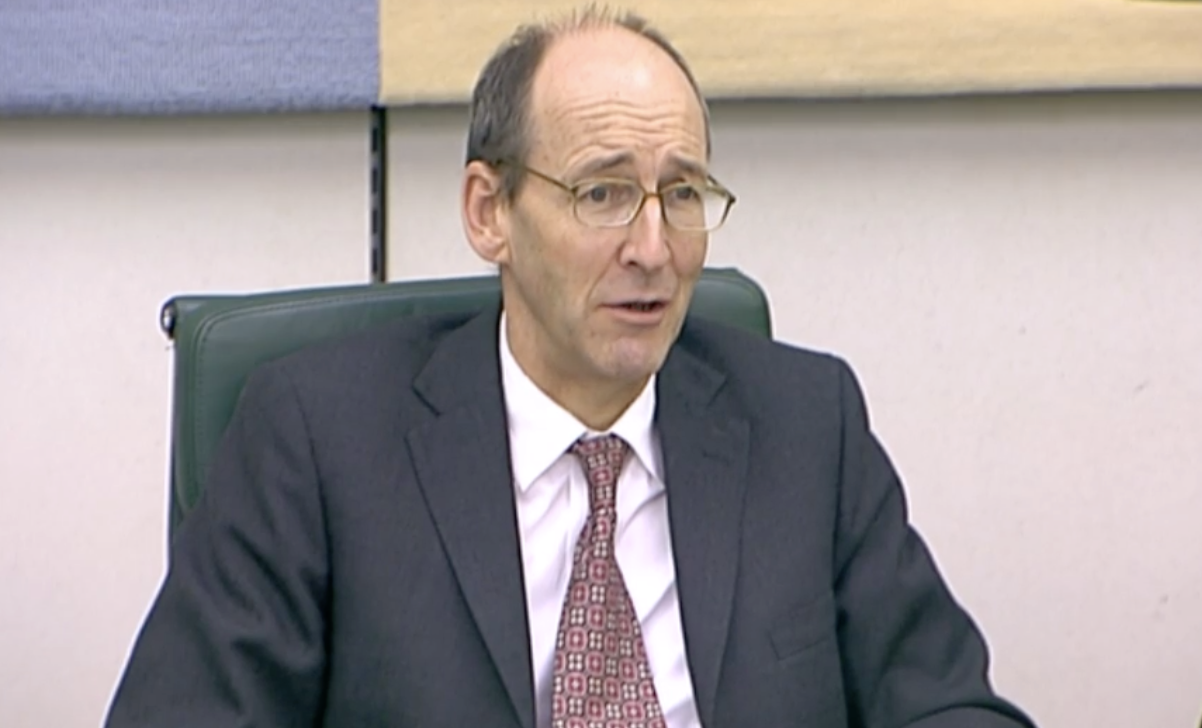Chancellor Philip Hammond must listen to Tyrie on taxpayer owned banks
UKFI, which is supposed to manage the state's interests at arm's length, should be closed down

The first - and so far only - sale of shares in Royal Bank of Scotland by the Government amounted to a kick to the stomach of everyone who pays tax.
Former Chancellor George Osborne went ahead in August 2015, despite the shares languishing at what was then a 52 week low.
The 330p sale price he achieved through what is known as an accelerated book build after trading had finished, was 34 per cent below the level at which the Government bought in on our behalf, and thus crystallised a £1.1bn loss for the taxpayer. There’s the kick.
The shares have since fallen even further, and Mr Osborne’s replacement Philip Hammond has put the privatisation process back on the shelf. Well, he has got rather bigger issues to deal with such as, you know, Brexit.
So has RBS, with the prospect of a truly gargantuan fine from the US looming.
So why are you writing about it now, I hear you ask. Well, the reason it’s getting interesting again is that Treasury Committee chairman Andrew Tyrie has managed to get the National Audit Office to review the advice given to Mr Osborne about the sale.
That advice was provided by UK Financial Investments, a body set up by Mr Osborne’s predecessor Alistair Darling when Labour was in office, with the help of a report from Rothschild, a merchant bank.
UKFI was supposed to oversee our investment in the banks on a semi detached basis from the Government, and to give the City confidence that ministers wouldn't interfere in their day to day running. At least not too much.
Mr Tyrie, among others, has argued that it has long outlived its usefulness (which was questionable at best when the body was set up). The Parliamentary Commission on Banking Standards (PCBS) that Mr Tyrie chaired said it should be abolished.
Partly that was because the PCBS argued that, far from preventing the Government from interfering in the banks, UKFI had actually facilitated it.
“The Government has interfered in the running of the two partly State-owned banks, particularly RBS. On occasions it has done so directly, on others it appears to have acted indirectly, using UKFI as its proxy,” the Commission said.
“The current arrangements are clearly not acceptable. Whatever the degree of interference, UKFI will increasingly be perceived as a fig leaf to disguise the reality of direct Government control.”
Au contraire, said Mr Osborne. “UK Financial Investments plays an important role in making sure the Government’s shareholdings are managed on an arms length, commercial basis.”
And there it ended. Until the RBS share sale gave Mr Tyrie another opportunity to take a shot at UKFI.
Said Mr Tyrie: “Parliament and the public will want reassurance that the Chancellor’s decision to sell the first tranche of shares in RBS in August 2015 secured the best value for money for the taxpayer, and was not influenced by political expediency.
“UKFI was created with the intention to ensure that state and partly state-owned banks are run, and seen to be run, free from government interference. There is a risk that UKFI is being used as a fig leaf to disguise a high level of Treasury control. UKFI’s advice on this sale is therefore of considerable public interest.”
He said this after writing to the NAO to encourage it to take a hard look at said advice. The NAO had originally said it wouldn’t do this until the state had sold enough RBS shares to make it a minority investor in RBS. But that might take years given the way things are going.
So the NAO has changed its mind and Mr Tyrie has just written to say thanks: “It is welcome that the NAO will examine the advice provided by UKFI to the Treasury ahead of the sale of shares in the RBS in August 2015.
“Parliament and the public will want reassurance that the Government secured the best value for money for the taxpayer.”
Indeed they will.
If Mr Tyrie didn’t exist, someone would have to invent him. For the financial health of the country. Not to mention the political health. There aren’t many MPs willing to challenge ministers in the way Mr Tyrie does.
If Mr Hammond would be willing to take a piece of advice, he might be wise to reconsider Mr Osborne’s decision to go against the PCBS’s recommendation to close UKFI.
Doing so could put him in Mr Tyrie’s good books for a while. That would come in handy given the challenges he faces.
Join our commenting forum
Join thought-provoking conversations, follow other Independent readers and see their replies
Comments
Bookmark popover
Removed from bookmarks